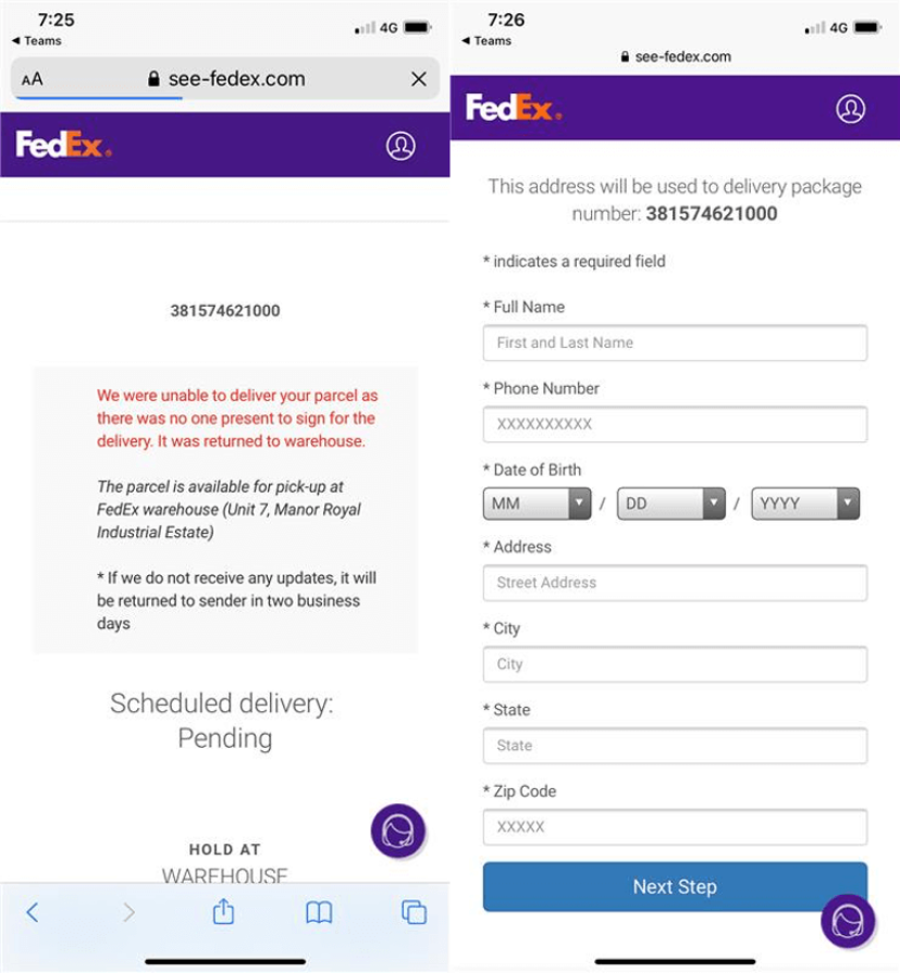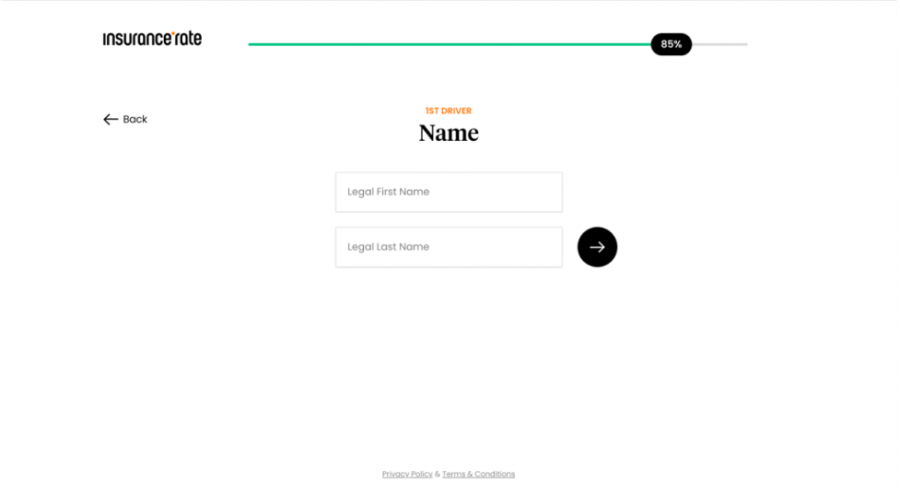Hot Phishing Scams of the Week: FedEx, Venmo, AT&T, Cathay Pacific, Eva Air, and MORE!

Author: Trend Micro
This article is from Trend Micro.
Check the top SMS and email phishing scams of the week. Can you spot these scams?
What is a phishing scam?
Phishing is when scammers impersonate famous brands, companies, and organizations by sending out fake text messages or emails containing phishing links. The aim is to entice you into opening the malicious links by using various excuses.
So, where do the phishing links lead to?
1. Fake online survey pages:
In some cases, they lead to online survey pages that state you can claim a gift by completing an online questionnaire. After you fill out the survey, you are prompted to enter personal information such as credit card numbers, before your “gift” can be delivered.
2. Fake login pages:
In other instances, the links lead to fake log-in pages impersonating various brands. These pages require you to submit log-in credentials to view your delivery status, change your settings, or for whatever other reason the scammers have given you.
Scammers can record any sensitive information you enter on their survey pages and use the data to commit cybercrimes. For example, they could hack into your account and withdraw your money, and even use your information to commit identity theft. Don’t let them!
Here are the top phishing scams we have observed this week.
Hot phishing scams of the week
FedEx Delivery Scams
Posing as FedEx, scammers send a fake delivery text to you. The attached links lead to a fake FedEx login page. Don’t fall for it!
- frm:fedex.2557027 msg:816884952-courier driver couldn’t deliver your parcel today. <URL>

COVID-19 Vaccine Check Scam
We wrote about COVID-19 text scams before — be careful of the latest version. Scammers falsely claim that you can get a “COVID check” if you’ve taken the vaccine via a phishing link. Don’t fall for it!
- failed to receive your $125 covid check for taking the vaccine? learn how to claim it by following this link
Car Insurance Scam
We have reported on car insurance quote scams in which scammers pose as DMV (Department of Motor Vehicles) and send text messages with phishing links before. Now a new scam targeted on drivers appear:
- Driver-Safety Paymn’t Issued – Your $8,852 check is being sent today. To cIaim yours, go here <URL>
The attached phishing link takes you to a blog post about “new rule” on car insurance tips and prompts you to check your discount rate:

To view your insurance quote, you will give to enter personal information:

However, instead of showing you the result, the page says something went wrong. In fact, your credentials are now already in scammers’ hands!

Free Gift Scam
Impersonating famous brands, scammers send text messages with phishing links, falsely claiming they are hosting raffle campaigns celebrating anniversaries, or giving away gifts randomly. They tell people that they’ve won prizes (iPhones, iPads, or other expensive products) and instruct them to claim the gifts via the attached links.
1. Venmo
- Venmo User: You have been selected to receive a free gift worth at least $100 for a 2 minute survey <URL>

Source: Reddit
2. AT&T
ATT Free Msg: Augustbill processed. Thanks, Arthur! Here’s a little gift for you: <URL>

Source: Reddit
Airlines Loyalty Program Email Scam
Who doesn’t love free airline miles? Scammers know that, so they impersonate airline companies and send you emails that say you can join in their miles loyalty program and get free miles via the button.
Now, you should know what happens next: you will be taken to a fake login page and tricked into sending out personal information!
1. Cathay Pacific

2. Eva Air

How to Protect Yourself
- Double-check the sender’s mobile number/email address.
- Free gifts or prizes are always a major red flag.
- Reach out to an organization’s customer service directly for help and support.
- NEVER click links or attachments from unknown sources. Use Trend Micro Check to detect scams with ease!
After you’ve pinned the Trend Micro Check browser extension, it will block dangerous sites for you automatically:

2. Send links or screenshots of suspicious text messages to Trend Micro Check on WhatsApp for immediate scam detection.

Download Trend Micro Maximum Security for even greater protection, including Web Threat Protection, Ransomware Protection, Anti-phishing, and Anti-spam Protection. Gain access to the Privacy Scanner for Facebook and Twitter, Social Networking Protection, and Parental Controls, too. Click the button below to give it a try:
Did you successfully spot the scams? Remember, always CHECK before giving out personal information. If you found this article helpful and/or interesting, please SHARE it to help protect your friends and family!
Report a Scam!

Have you fallen for a hoax, bought a fake product? Report the site and warn others!
Scam Categories
Help & Info
Popular Stories
As the influence of the internet rises, so does the prevalence of online scams. There are fraudsters making all kinds of claims to trap victims online - from fake investment opportunities to online stores - and the internet allows them to operate from any part of the world with anonymity. The ability to spot online scams is an important skill to have as the virtual world is increasingly becoming a part of every facet of our lives. The below tips will help you identify the signs which can indicate that a website could be a scam. Common Sense: Too Good To Be True When looking for goods online, a great deal can be very enticing. A Gucci bag or a new iPhone for half the price? Who wouldn’t want to grab such a deal? Scammers know this too and try to take advantage of the fact. If an online deal looks too good to be true, think twice and double-check things. The easiest way to do this is to simply check out the same product at competing websites (that you trust). If the difference in prices is huge, it might be better to double-check the rest of the website. Check Out the Social Media Links Social media is a core part of ecommerce businesses these days and consumers often expect online shops to have a social media presence. Scammers know this and often insert logos of social media sites on their websites. Scratching beneath the surface often reveals this fu
So the worst has come to pass - you realise you parted with your money too fast, and the site you used was a scam - what now? Well first of all, don’t despair!! If you think you have been scammed, the first port of call when having an issue is to simply ask for a refund. This is the first and easiest step to determine whether you are dealing with a genuine company or scammers. Sadly, getting your money back from a scammer is not as simple as just asking. If you are indeed dealing with scammers, the procedure (and chance) of getting your money back varies depending on the payment method you used. PayPal Debit card/Credit card Bank transfer Wire transfer Google Pay Bitcoin PayPal If you used PayPal, you have a strong chance of getting your money back if you were scammed. On their website, you can file a dispute within 180 calendar days of your purchase. Conditions to file a dispute: The simplest situation is that you ordered from an online store and it has not arrived. In this case this is what PayPal states: "If your order never shows up and the seller can't provide proof of shipment or delivery, you'll get a full refund. It's that simple." The scammer has sent you a completely different item. For example, you ordered a PlayStation 4, but instead received only a Playstation controller. The condition of the item was misrepresented on the product page. This could be the
